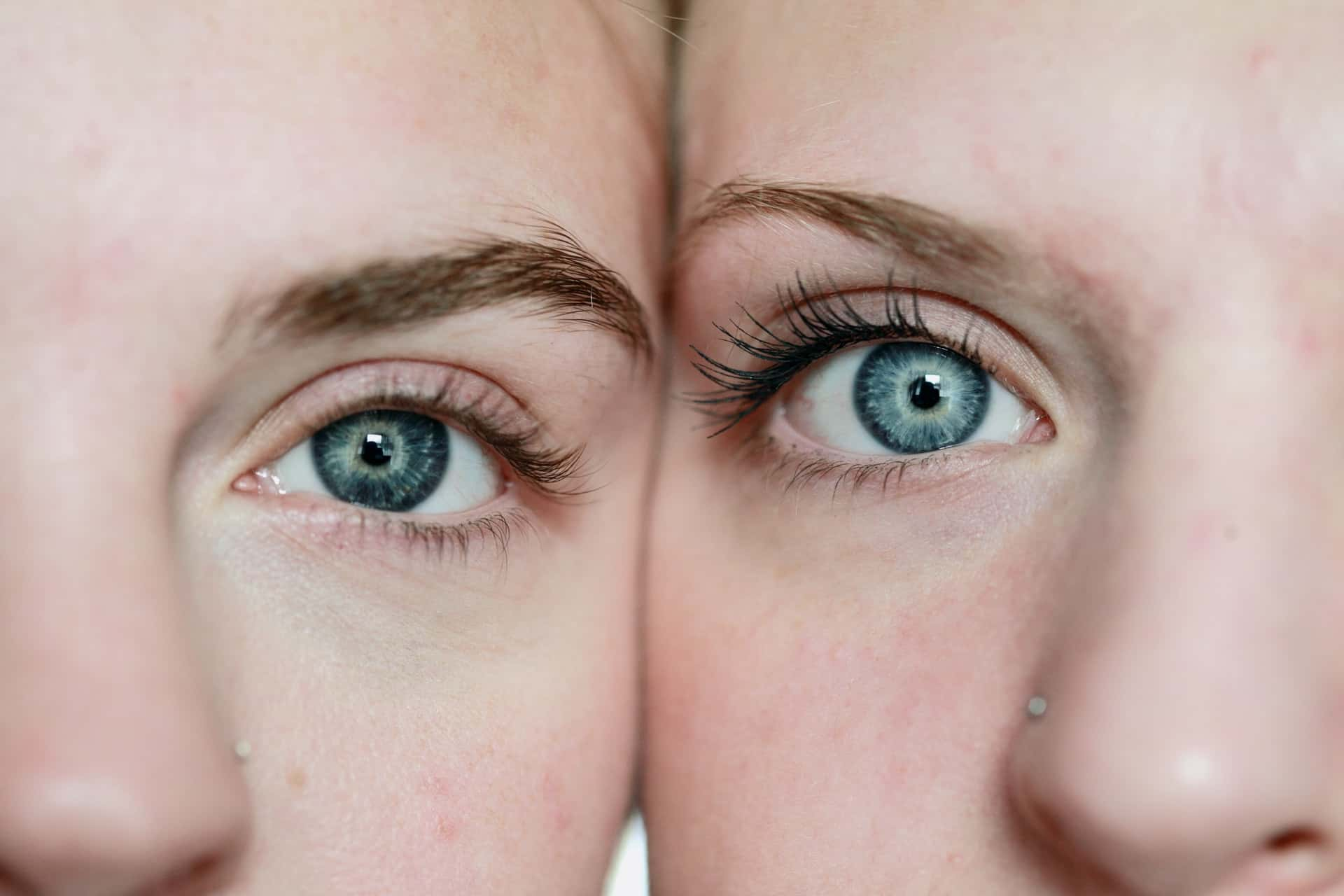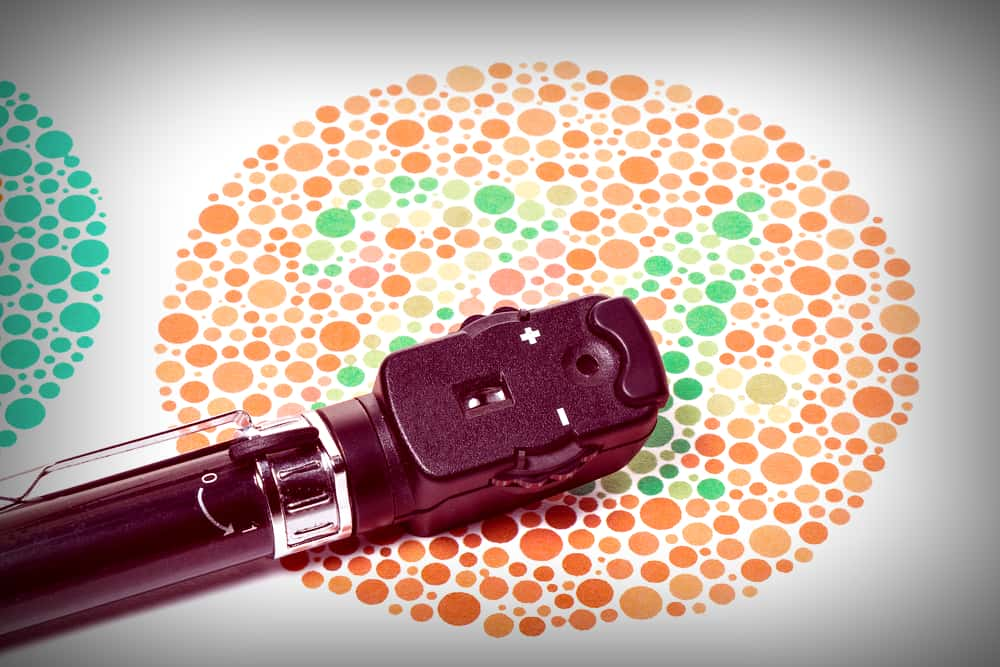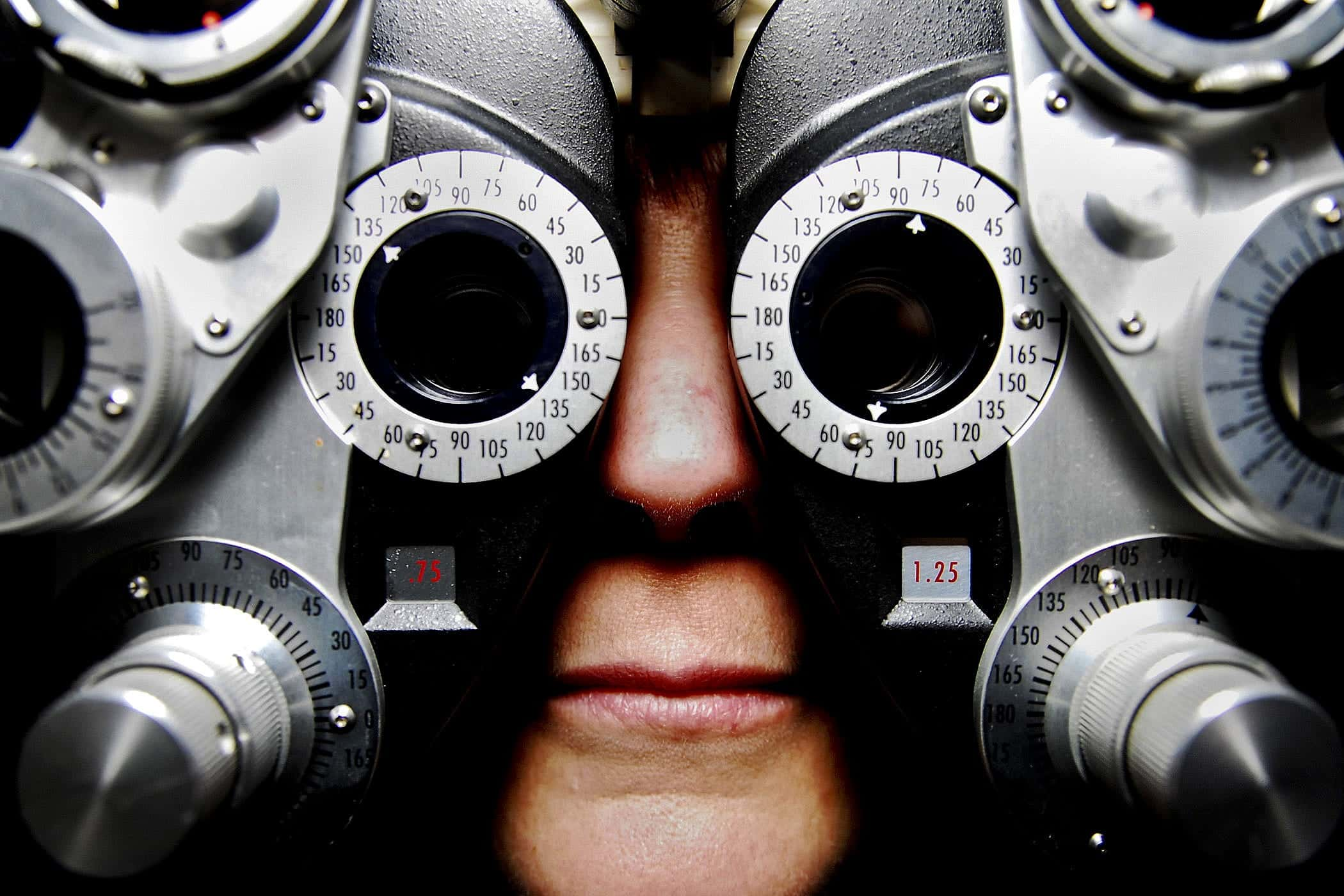Most people feel that have a strong grasp on the senses. They are, after all, as plain as the nose on their face. But they haven’t heard of the host of other senses human beings have. Sorry if these puns are in poor taste, but there’s more to our senses than meets the eye. Considering how they guide us through the world, we live our lives mostly unaware of the hard work our senses are doing at any given time during the day. They do their job thanklessly every day, and when one is compromised, the others come together to pick up the slack. Teamwork! Here are 42 sensational facts about the five sense everyone's heard of, and maybe a few extras too.
Senses Facts
42. Animal Magnetism
Ever wonder how birds fly south every fall and come back north in the spring, without tiny little bird maps or bird GPS? Well, in a sense (get it), they do have a kind of bird GPS. Some birds have deposits of magnetite in their sinuses which are actually affected by the Earth's magnetic field, helping them navigate the earth, and probably aiding in their migration. Humans have similar deposits of magnetite, and while they're largely useless to us now, scientists believe our ancestors would have relied on them for navigation, much the way birds do today. That sense, by the way, has the incredible name "magnetoception." Like Inception, but with magnets. Awesome.
41. Man’s Best Friend
Everybody loves dogs, right? They’re loyal, compassionate, and friendly. Hunters and police officers love dogs because a dog’s strong sense of smell and hearing are really useful when tracking game or sniffing out crime. In fact, we might have become so reliant on these experts that our own senses have atrophied: studies have shown that human brains—especially the parts which manage smell and hearing—began to shrink around the same time we started domesticating dogs, almost as if our bodies outsourced these senses to our canine friends.
40. Sounds Hot
Heat is created by molecules speeding up. Even if a cold tap and a hot tap were turned to the same pressure, cold water is just a little bit more viscous than hot water, so it moves more slowly, if just ever so slightly. The difference is minute—happening at the molecular level—but the human ear is still capable of perceiving the difference between hot and cold running water with nearly 100% accuracy. Your body is even more amazing than you know! My sense of human nature is currently predicting a 100% chance that you'll try to test your own sense of hearing cold and hot water the next time you're near a sink.
39. Feeling Out the Situation
Touch feels different depending on the situation. Two sensory pathways process touch—one, the physical sensation, and the other, the social and emotional context. That’s why a hug from your grandmother might make you happy, while a hug from a stranger might make you queasy. Some people who have had these parts of their brain damaged might have no emotional connection to physical sensations—pleasurable or painful—at all.
38. Rest Your Eyes
The average human eye processes 24 million pieces of information over the course of a lifetime, and is capable of processing 36,000 pieces of information every hour. That sounds like a lot, but don’t worry, this is the last fact—you can consider your eyes dismissed!
37. Compact Lenses
The eye might seem small and straightforward, but it contains more than two million distinct working parts. The largest of these is the vitreous body, a gelatinous mass between the lens and the retina. Pretty much all of those words sound gross, don't they?
36. Old and Out of Touch
Sight and hearing tend to fade as we age, but so does the sense of touch. From the age of eighteen on, our sense of touch weakens by about 1% every year.
35. A Colorful Fact
Because the genes which affect color visibility exist on the X chromosome, men are more likely to be color blind than women. Nearly 7% of American men suffer from some form of color blindness, while just a fraction of a percent of women do.
34. Nasal Days
If you have no sense of smell, like actor Bill Pullman, Ben Cohen (of Ben and Jerry’s fame), or fictional rock icon Dewey Cox, you're an Anosmiac. Anosmia Awareness Day takes place every year on February 27.

History's most fascinating stories and darkest secrets, delivered to your inbox daily.
33. Last Words
Based on a study of EEG scans on dying people, the sense of hearing is the last to go when a body dies. In one way, it's terrifying to think of not being able to see or feel anything, but in another way, it's good news to anyone who has been there for a loved one at the end, knowing they could hear your voice.
32. First Impressions
Here’s a terrifying idea: the first thing you ever saw was upside-down and black and white. Before they have “learned” to see, babies are unable to flip the images which are filtered through their retina. That takes a few days. Color takes a little longer, about two months. Babies first distinguish reds and yellows, then gradually adjust to the rest of the spectrum.
31. That New Smell Smell
The sense of smell is the first sense, developing even while a person is still in the womb. The sense of smell is also the last…sort of. Your smell receptors are constantly regenerating and renewing themselves. The process takes about 28 days, but by then your smell receptors have been completely replaced. Basically, you get a brand new sense of smell every month.
30. Nose Nap
Sweet dreams? Well they don’t smell that way. In fact, a person can’t smell anything at all while they are sleeping.
29. Mind Your PB&J’s
Peanut butter can be useful in diagnosing Alzheimer’s. When cognitive faculties begin to fail, the sense of smell is usually first to go; loss of smell even precedes lapses in memory. Scientists at the University of Florida have found that, in a study of 90 participants, they were able to accurately predict those who had recently been diagnosed with Alzheimer’s or dementia by a subject’s ability to recognize the scent of peanut butter.
28. Sweet Memories
You may actually remember things better if you have a little dessert. The taste of sugar can excite the dorsal hippocampus, the part of your brain which logs memory. So if you’re cramming for your finals, or you just can’t remember where you left your wallet, you’ve got a good excuse to have that last piece of cake.
27. Remember to Drink in Moderation
That being said, sweet tastes kick off the same sensations in the brain that alcohol does. Studies have shown a coincidence among heavy drinkers and people who have a fondness for sweets; this love of both sweet tasting things and alcohol is genetic, and can carry on from parent to child. So if sugar helps you remember, and drinking makes you forget, you might do no better than break even.
26. Airplane Food
The sense of taste is pretty fickle. A lot of things can affect how we taste certain foods, including texture, smell, and environment. For example, savory food actually tends to taste even better when flying. The environment of an airplane suppresses our “sweet” receptors and enhances our “umami” receptors. Strangely, it isn’t the altitude or the pressure which causes this effect, but the peculiar sounds of a jam-packed passenger plane.
25. Off the Charts
Most people are familiar with the traditional “taste bud map.” Maybe you saw it in elementary school, or in a book at the doctor’s office, with the different sections of a tongue marked “sweet,” “salty,” or what have you. Unfortunately, that map is completely wrong, the result of a mistranslation of a German paper. In fact, any of your taste buds can perceive any taste.
24. You and All Your Buds
Not only does every individual perceive taste differently, everyone actually has a completely different number of taste buds. The range is impressive, with most people having somewhere between 2,000 and 10,000 taste buds. Some “super tasters” have even more.
23. Flavor Country
You don’t just have taste buds on your tongue, but on the roof of your mouth, the insides of your cheeks, and in your throat as well.
22. Have You Heard…?
The nerve which does most of the work sending taste signals to your brain travels through the middle ear, and so your diet may affect your hearing. Scientists at the University of Florida have found that people who enjoy saltier, fattier foods are more likely to get ear infections than those with a healthier diet.
21. Sensory Overload
A heavy meal can dampen your hearing. So the next time you gorge yourself at Thanksgiving dinner/Christmas dinner/a random Tuesday night, at least you've got an excuse if you can't hear anything anyone says.
20. Out of Sight
The record for best vision—as far as anyone has been able to measure such a thing—belongs to Dr. Dennis Levi, who was able to identify a bright green line, a quarter of an inch thick, from half a mile away. Fittingly, Dr. Levi is a professor of vision science and optometry at UC Berkley. He wears glasses, by the way. Is that cheating? I guess I don't know the rules.
19. Touch-Blind
There’s no proper name for their condition, but just as there are blind people or anosmiacs, there are people who are “touch blind,” and have no sense of touch at all. They are unable to distinguish unseen objects by texture, shape, and even size, though some still manage to recognize the emotional effects of physical touch.
18. Hair Me Now
Try this tongue-twister: no one can hear without the hair in their ears. It’s true! The cochlea is lined with stereocilia, which act as sensory conductors and send the sensation of sound to your brain. They don’t regenerate, so if they’re damaged by loud noise or, say, a horrible sideburns-trimming accident, you will lose your sense of hearing.
17. Lighten Your Mood
Our opinion of people can be shaped by the physical sensations we experience when we first meet them. In one study, participants were asked to read resumes from a clipboard. They had higher opinions of people whose resumes they read on a lighter clipboard, and lower opinions if the clipboard was heavy. Keep those resumes light, folks!
16. So Many Smells
Humans can smell roughly 10,000 distinct odors. Women have a slightly better range of smells than men, but they tend to drop down to the average male range as they age.
15. Seeing Sounds
Synesthetes—that is people who experience one kind of sensory stimulation in relation to another, like tasting apples when one hears a car horn—make up about 4% of the population. Synesthetes tend to be creative people: Kanye West, Pharrell Williams, and Vincent Van Gogh have all experienced synesthesia.
14. Secretive Senses
While synesthesia does seem connected to genetics somehow, no one is quite sure what causes it yet, why it goes away, or how exactly it works . It begins at birth for many synesthetes, but some lose it at puberty. Others don’t develop synesthesia until later in life. One man, colorblind since birth, could still see an array of colors when he was shown a list of numbers.
13. Buoyant BO
Sweat can smell happy: In a study conducted by Utrecht University in the Netherlands, researchers subjected groups of young men to happy, sad, or frightening videos, then they collected their sweat. Women who smelled the sweat of the happier donors mirrored that emotion. The same did not hold for women who smelled the sweat of sad or frightened men. Crazy, but for real, who paid for that study?
12. Slam Dunk
A season-long study of NBA games showed that teams which shared more physical contact—hugs, high-fives, chest bumps, and of course, butt slaps—were more likely to be successful. No only that, but players who did the most touching tended to be the most successful on an individual basis. This was an exciting discovery, one which I'm sure prompted the lead researcher to exclaim “stop watching that game and get back to work!”
11. Tantamount to Torture
Left too long deprived of our senses, however, we become prey to a host of negative effects: anxiety, depression, hallucinations, paranoia, and on and on. So extreme are the effects of long-term sensory deprivation that the UN has been forced to declare its use in interrogations and imprisonment “inhuman and degrading.”
10. All’s ’feld That Ganzfeld
Related to sensory deprivation is the “ganzfeld effect,” hallucinations caused by subjection to constant uniform stimulation. For example, if one were to stare at a blue wall for too long, the brain would begin “inventing” visual stimuli to compensate.
9. Pythagoras
While scientists have only begun inquiring into the ganzfeld effect since the 20th century, people throughout history have noticed it. Allegedly, the Ancient Greek mathematician Pythagoras found it helpful when dealing with a complex problem to descend into a dark cave and let the hallucinations caused by the ganzfeld effect lead him to a solution.
8. Naming Pain
The ability to feel pain, one of the dozen or so non-classical senses, is called “nociception.” The term, which was coined by neurophysiologist Charles Scott Sherrington, comes from the Latin nocëre, “to harm.”
7. That’s Time
Has anyone ever told you that you have impeccable timing? Or warned you your biological clock was ticking? I’m afraid they were right. Among humans’ other outstanding perceptive abilities is a sense of time, or “chronoception,” which can help govern things like your circadian and ultradian rhythms. Scientists haven’t yet traced it back to any single sensory mechanism—it seems to be something that several parts of our brain monitor at once.
6. Half-Listening
Here's a fact known only to scientists and lazy comedians from the 1980s: women listen with their whole brain, while men only use half. While both men and women use the left side of their brain to process language, the right sides of women’s brains have been shown to increase in activity when listening as well.
5. A Mystery of the Mind
No high-fives just yet, ladies: this activity in the right brain, which controls non-auditory function, might mean women are processing other information as they speak, or it might mean their other functions have to work harder while they listen. It’s not exactly clear why men’s and women’s brains work differently for this task, but scientists want to assure us that, ultimately, men and women listen equally well.
4. Extra Sensory Perceptions
Everyone knows about the five traditional senses—touch, taste, smell, sight, and hearing—but humans have more than a dozen other senses, like balance and “thermoception” (the ability to feel temperatures). Even perceptions like hunger or the need to use the washroom are considered senses.
3. Child Care
Touch is crucial to an infant’s development. In post-revolution Romania, when maternity wards and orphanages were desperately understaffed, infants often went without the necessary human contact, which proved to have lifelong negative effects. Not only did many of those children grow up to have mental and emotional issues, but weakened immune systems as well, leaving them susceptible to all sorts of illnesses.
2. No Sense At All
So what’s it like to live without your senses? Some people actively pursue this experience through the use of sensory deprivation tanks, which eliminate not just the obvious senses—vision, hearing, and the rest—but also the other senses like weight and thermoception. Practitioners claim the experience—if done in short bursts—can be meditative and therapeutic.
1. I Think I Smell A Rat
A 2012 study at Australia’s Macquarie University suggests that psychopaths may have a weaker sense of smell than the rest of us. Participants were asked to distinguish between common smells like coffee and oranges, and then given a standard personality test; those with less empathetic personalities tended to flunk the smell test. Researchers think this might have something to do with underdevelopment in the frontal lobe—the part of the brain which affects the sense of smell, but also affects impulse control and social behaviour.
Sources: 1, 2, 3, 4, 5, 6, 7, 8, 9, 10, 11, 12, 13, 14, 15, 16, 17, 18, 19, 20, 21, 22, 23, 24, 25, 26, 27, 28, 29, 30




















































